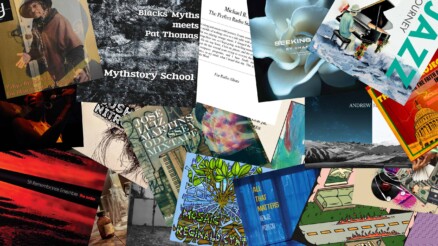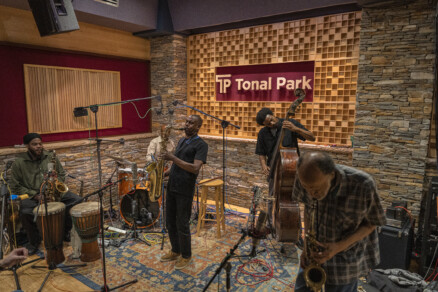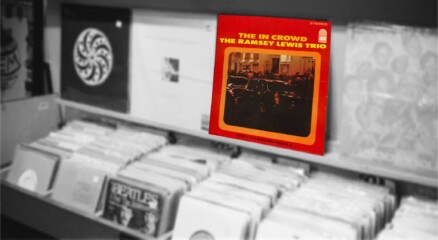Professor Fred Irby III: A golden commitment to Howard University’s jazz program
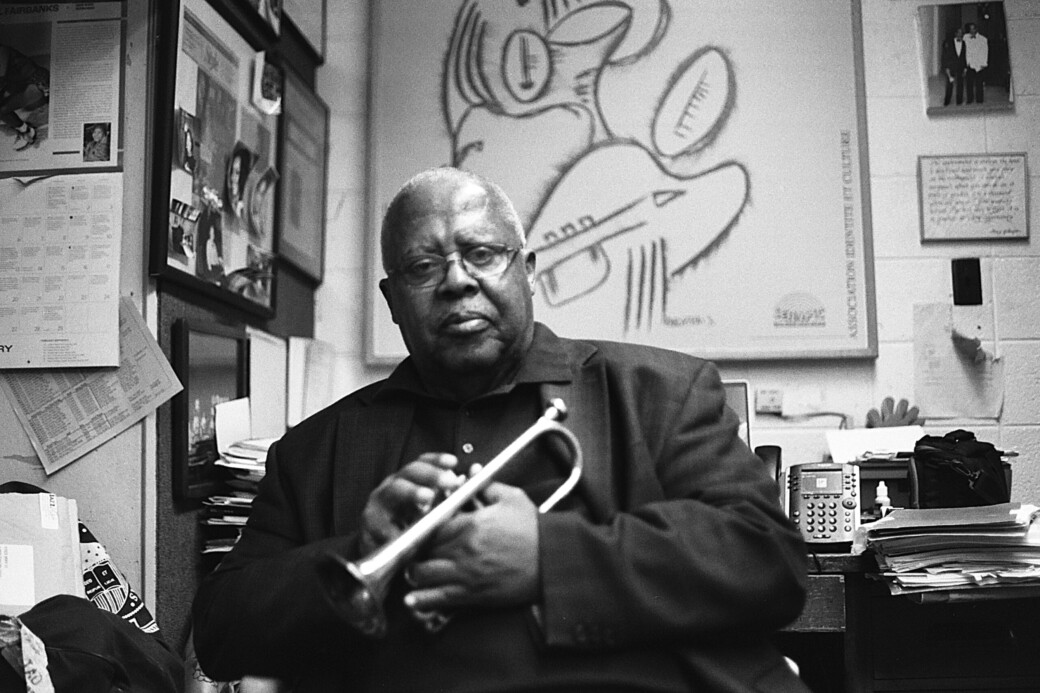
When I walked into the band room at Howard University in the summer of 1983 for my Jazz Ensemble audition, I had no idea who Fred Irby III was. I knew that he played trumpet and worked at the Kennedy Center. But I didn’t know that he was the founder of the very band for which I was auditioning — and I really had no idea how much he would teach me.
One year after starting the Howard University Jazz Ensemble (HUJE) in 1975, Irby started recording the band every year. It was one of those recordings – the 1981/82 LP – that had made me want to be a part of that atmosphere.
As for my audition, Professor Irby conducted himself very professionally and really didn’t say a whole lot. But I could feel I was in the presence of greatness, and I was intimidated. Prof placed some music on the music stand that was very challenging to me. At that time, I was transferring from Texas Southern University and had never had to audition before, and I certainly did not know how to prepare for one. During the audition, Prof’s demeanor never changed, even as I struggled with some of the passages. Afterward, with me thinking I’d just crashed and burned, he said: “I think I have a place for you in the band.” I was so happy, I wanted to jump up and down.
That very statement changed my life, just like it has changed the lives of countless students before and after me.
What I noticed after being in the band for only a few rehearsals was how prepared Prof. Irby was and how efficiently he ran the rehearsals. There was rarely wasted time in rehearsals, unless some misguided student wanted to challenge Prof on something — and that was really fun. Prof. Irby had a way of using analogies and metaphors to make the person that challenged him feel a little silly. It usually ended with the whole band laughing along with the person. It was never done in an off-putting or demeaning way; it was done in an educational way.
Above all, the importance of preparation and efficiency were my two big takeaways from his teaching and mentorship. They have served me well throughout my career. I graduated from Howard in 1985, Prof. Irby’s 11th year of what has now become an amazing, historic 51-year career.
This will be Professor Irby’s last year at Howard University, and I recently caught up with him at a coffeeshop in Silver Spring, Md., to talk about his many decades in service to the music.
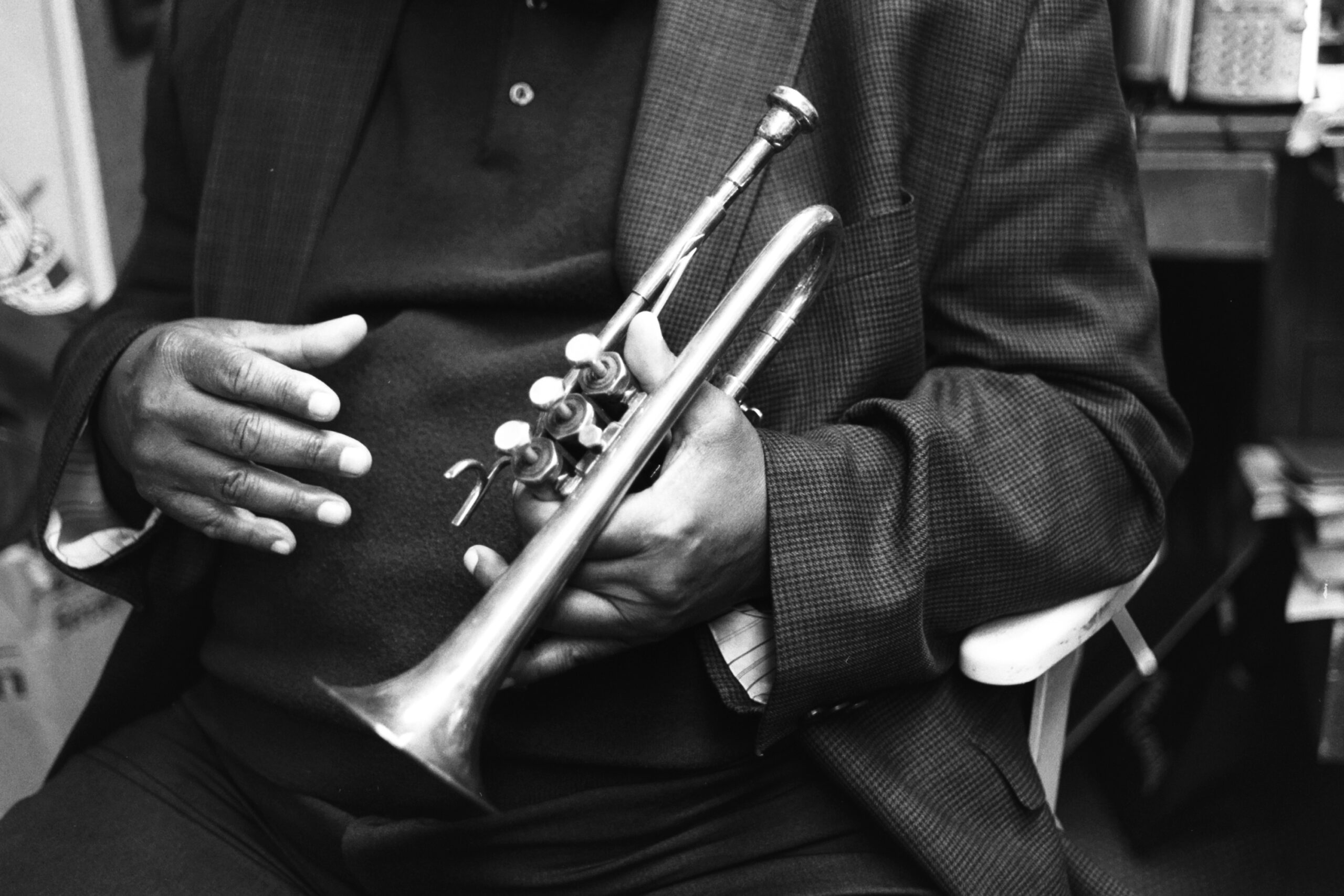
When I saw him at the cafe, he was working — sending emails for an upcoming engagement. I immediately asked him, Where did you get your work ethic? He said, “I lost both of my parents two years apart in my teenage years. I have always worked. I have always liked working.”
Though Irby’s older brother played drums in the school marching band, he hardly came from a musical family. Irby’s musical influence, rather, came from his environment. Growing up in Mobile, Ala., in the 1950s, the marching band used to practice marching through the neighborhoods. “I was one of those little kids following behind the band,” he said. At about age 9, he asked his father to buy him a trumpet, and he did.
“I immediately took to the instrument, and my teacher – which back in those days taught all the grades – was a trumpet player. He was a great trumpet teacher and player, so I always had good fundamentals,” Irby said.
His passion for playing earned him a full scholarship to Grambling State University. He earned his master’s from Southern Illinois University at Edwardsville. After finishing school, he started going to job fairs. “I was going to take the first thing that was offered,” he said, “because I wanted to get out of the South.”
He got a job in St. Louis but was ill-prepared for the weather. “I got off the plane and it was snowing and cold as hell. I only had a trench coat,” he laughed. Not long after getting to St. Louis, Irby started working lots of gigs with big bands, and writing for them as well.
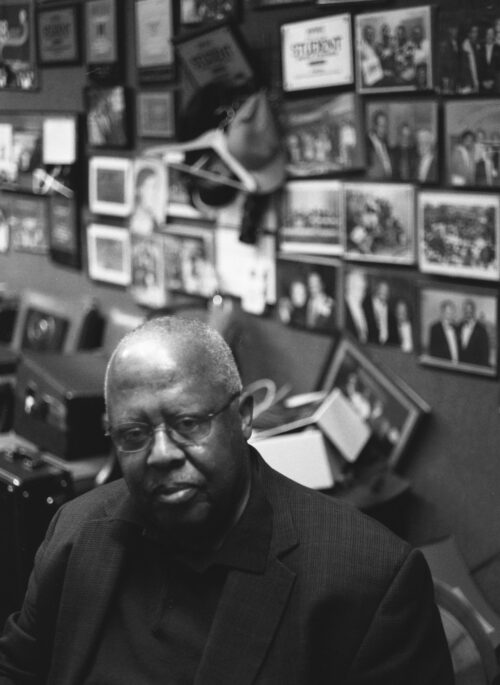
He was doing so well in St. Louis that when he was first offered a job at Howard, he didn’t take it. “Man, I was making more money in St. Louis with my gigs and things. The offer I received from Howard was less, so I turned it down,” he said. When he told some musicians back in St. Louis that he had turned down the job at Howard, they said, “Man, are you crazy? You can get more work in D.C., and plus, work at the Kennedy Center.” At the time, Irby said, he didn’t even know what the Kennedy Center was.
In time, though, he would learn. Howard called him back two weeks later and increased the offer, and he took the job.
When he arrived at Howard in 1974, there were no instruments and no ensembles aside from the “Nifty Fifty” marching band. He convinced the administration to give him a budget to buy some instruments, and a year later, he founded the Howard University Jazz Ensemble.
The band got off to a quick start. That same year, 1975, the HUJE did its first show at the Kennedy Center. In 1976, Irby took the HUJE to Romania on the first of many international tours. He also recorded the band that year, in the first of what would eventually be 48 recordings.
Off campus, Irby was planting roots in D.C. In 1977, he received tenure in the Kennedy Center Opera House Orchestra and Show Orchestra. Prof. Irby possesses the skills necessary to play in an operatic orchestra and in a commercial show orchestra, and he was the only Black musician in both orchestras for years.
Back at Howard, Irby wanted to recruit more jazz students, so based on a suggestion from the legendary trombonist and composer Calvin Jones, he visited Cass Technical High School in Detroit. There he recruited four students, one of whom was the late Geri Allen, who would become a world-renowned jazz pianist and composer.
In 1979, Allen’s senior year, the HUJE band was stacked with talent. The members included her, Wallace Roney, Gregory “Chuckie” Royal, Warren Shadd, Carroll V. Dashiell, Jr., (current chairman of the Howard music department), Michael Bearden (Michael Jackson’s former music director), Wayne Linsey, Gary Thomas, Bill Murray, Howard Crawford and other super-talented musicians.
I asked Prof. Irby how he kept all those great young players happy. “That’s easy,” he said. “Just give them something to do. If you notice those recordings in 1978/79, all the music was original music written by the students. So, when they started raising hell, I made them write.”
Irby gave a copy of the first HUJE recording to the president of Howard, Dr. James Cheek. Dr. Cheek immediately saw the value in the recording — so much that he paid for the next one, and paid for additional copies to be pressed. Dr. Cheek would give the HUJE recordings to major donors and to the Board of Trustees of the university. This increased the profile of the HUJE — and, quite frankly, of Howard University.
In addition to the recordings, Irby facilitated tours for the band all over the world. I personally toured the Caribbean and South America with the band in 1983. That trip was and still is a highlight of my life for many reasons. But one special reason was that legendary pianist John Malachi accompanied us on the trip. On that trip, Prof. Malachi would tell us stories about when he was out on the road with Billy Eckstine, Sarah Vaughan and Pearl Bailey. He had several stories about Charlie Parker as well.
The HUJE was the first band to perform in the People’s Republic of China in 1986. When I asked Prof. Irby which one of his bands was the best during his 50-year career — while of course advocating for my band, 1983 — he said: “While that 1979 band was stacked, I can’t put any band over the other because they all had strengths and weaknesses.”
The HUJE has its own definitive sound. When you hear the group play, you know it’s Howard by the first few measures played. I asked Prof. Irby about that HUJE sound.“Most of the music we play in my band is commissioned,” he said. “I have a few arrangers that I use, but I direct them on how I would like each piece written. All the pieces are geared towards the strengths and weaknesses of each particular group.”
I asked how he kept the level of the group so high for 50 years. “Each year is harder than the previous year, every year I’ve been at Howard,” he said. “We were a College of Fine Arts, and then we became a division of fine arts, and with that decision [the administration] took all the scholarships. Now music students have to take classes they don’t need, because they want the curriculum to be the same for all students.”
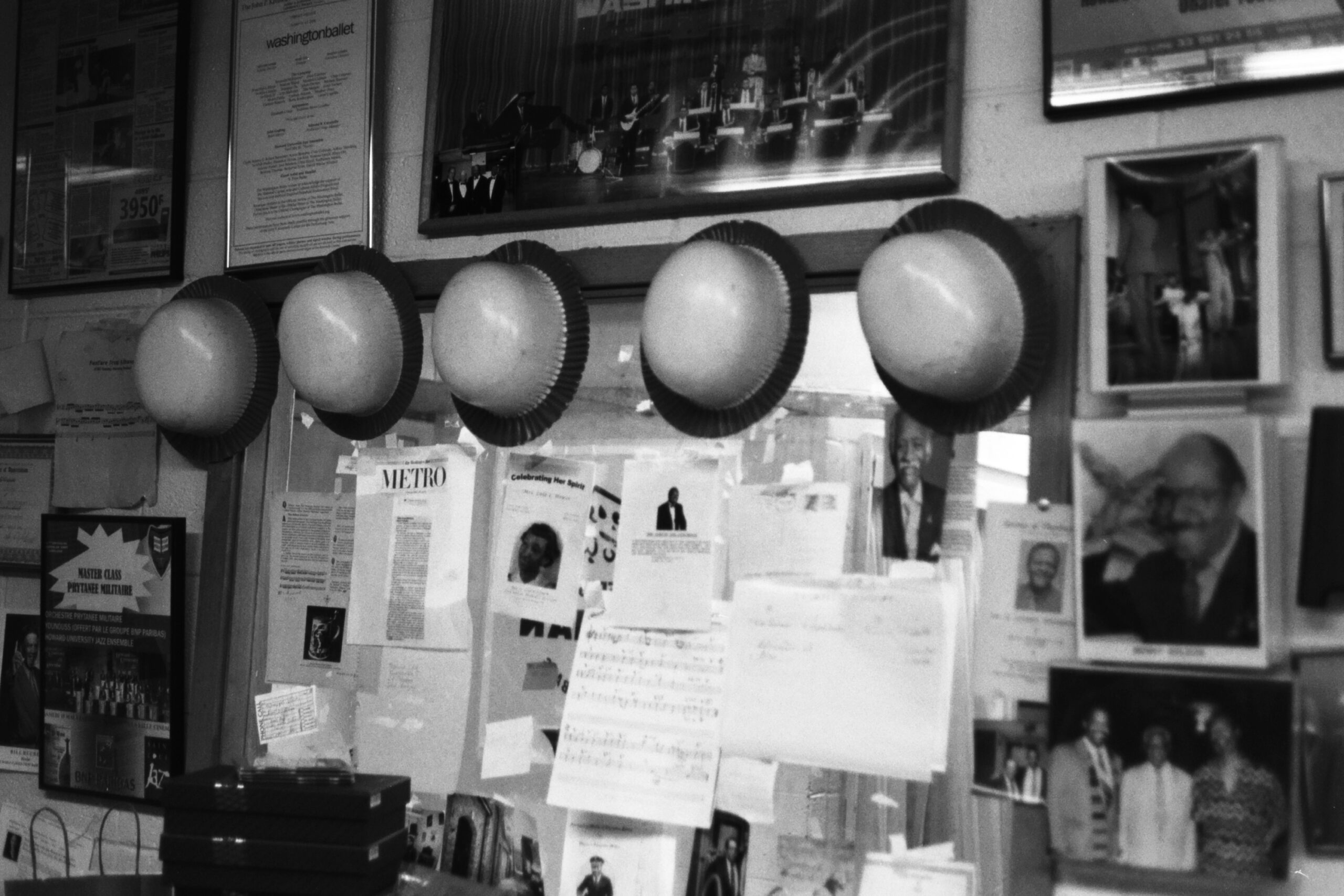
Prof. Irby has had to procure donors for the program outside of the university. He uses those funds to round out the band with professional musicians, and to pay special-guest musicians for the programs and concerts that he produces.
For a time, Donald Byrd, who himself taught at Howard in the 1960s and helped establish its jazz program, would occasionally rehearse with the HUJE. He became a trusted confidant of Irby’s.
After saxophonist Benny Golson – himself a Howard alum – was awarded a National Endowment for the Arts Jazz Masters fellowship in 1995, Byrd suggested to Prof. Irby that it would great if the newly minted Jazz Master was awarded an honorary doctorate from Howard, too. Prof. Irby spoke with the Board of Trustees about the idea, which, at the time, the Board rejected. That led Prof. Irby to embark on a 17-year effort to advocate for an honorary doctorate for Jazz Master Benny Golson.
Prof. Irby eventually established the Benny Golson Jazz Master Award at Howard to honor the legacy of the saxophonist and composer. The award is now given every year to an outstanding individual or individuals in the jazz music community worldwide, helping to keep the career and accomplishments of Benny Golson in the minds of the Howard University community. And in 2014, after years of Prof. Irby’s advocacy, Benny Golson finally received an honorary doctorate from his alma mater.
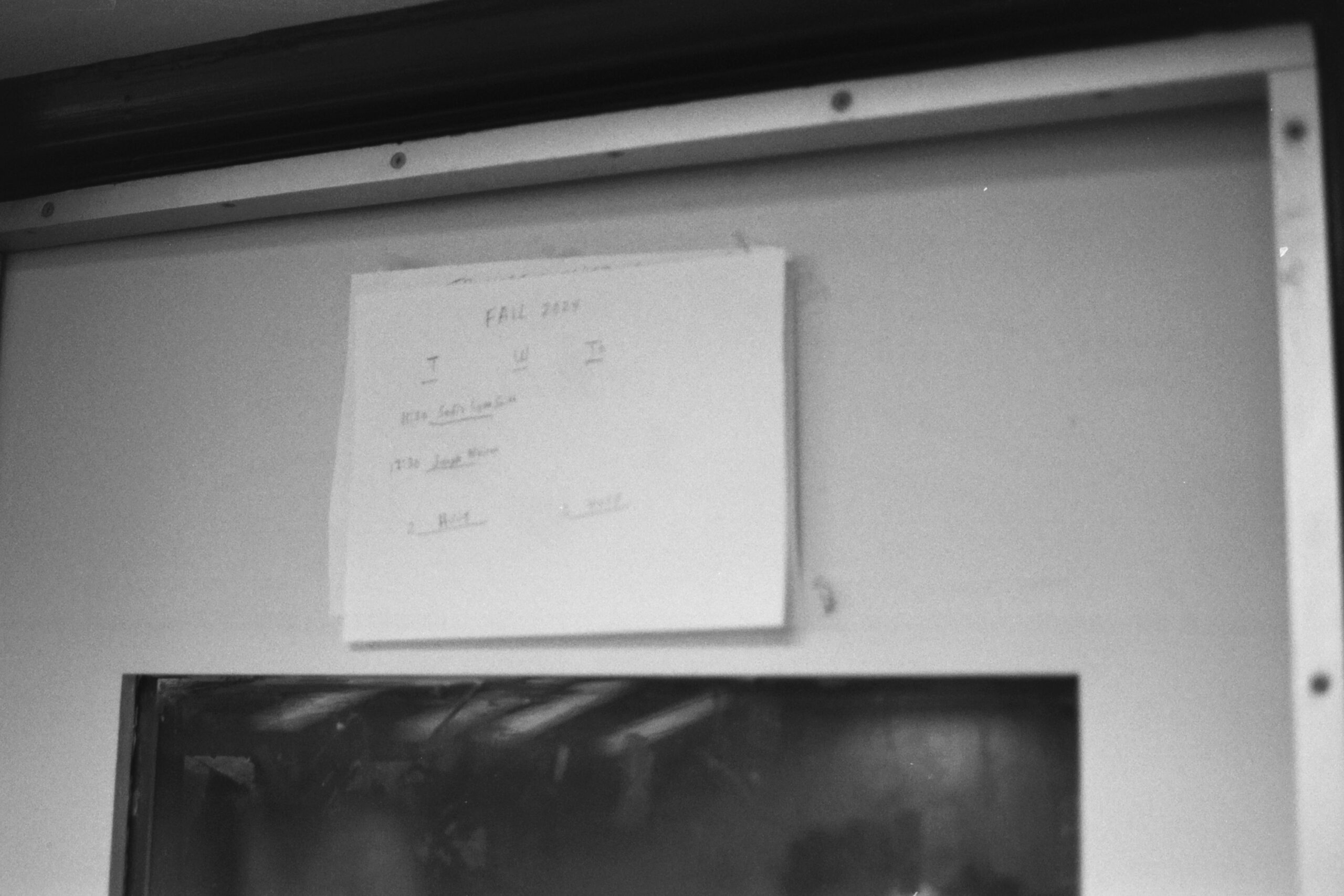
Our conversation now at this coffee shop is well into its fourth hour, and we could easily go on another few. You would never know I was talking to a 76-year-old man, as he is recalling every year of his teaching with names and conversations, as if he was just remembering what happened last week. He clearly has enough energy to continue at Howard for years.
He told me about all the things he has planned for this, his 51st and final year. I told him: This does not seem like your 51st year, this seems like your first year. “I have set a high bar for myself,” Prof. Irby said, “and I want to stay at that level.” The words of a true trailblazer, amazing educator and a musician whose impact will be felt for many years.
DC, DC jazz, Fred Irby III, Geri Allen, Howard University, jazz, Paul Carr, Washington


